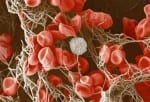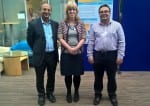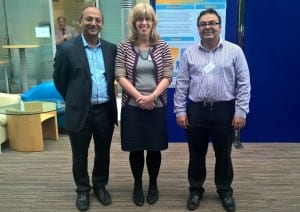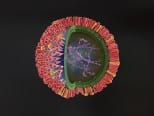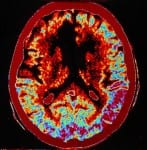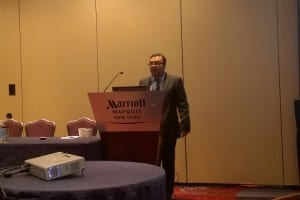 A study from CaHRU, ‘Influenza vaccination and risk of stroke: self-controlled case-series study‘, recently published in the journal Vaccine, received international coverage in news media. The study of almost 18,000 patients with stroke looked at data from general practices in England using a self-controlled case series analysis, and showed that the risk of suffering a stroke is significantly reduced for up to two months after receiving a flu vaccine.
A study from CaHRU, ‘Influenza vaccination and risk of stroke: self-controlled case-series study‘, recently published in the journal Vaccine, received international coverage in news media. The study of almost 18,000 patients with stroke looked at data from general practices in England using a self-controlled case series analysis, and showed that the risk of suffering a stroke is significantly reduced for up to two months after receiving a flu vaccine.
 The lead author was Dr Zahid Asghar, who conducted the research together with Prof Niro Siriwardena (both from CaHRU) and Dr Carol Coupland (from Nottingham University School of Community Health Sciences). This is the fourth in a series of studies over the past 10 years looking at the link between flu vaccination and reduction in risk of heart attack and stroke.
The lead author was Dr Zahid Asghar, who conducted the research together with Prof Niro Siriwardena (both from CaHRU) and Dr Carol Coupland (from Nottingham University School of Community Health Sciences). This is the fourth in a series of studies over the past 10 years looking at the link between flu vaccination and reduction in risk of heart attack and stroke.
 The coverage included articles in The Times, Sun and Scottish Sun newspapers, BBC television and radio and online media outlets in the US, Middle East, Asia, Australasia and South America. The team are now designing future studies to explore the potential for flu vaccination to reduce risk of heart attack and stroke.
The coverage included articles in The Times, Sun and Scottish Sun newspapers, BBC television and radio and online media outlets in the US, Middle East, Asia, Australasia and South America. The team are now designing future studies to explore the potential for flu vaccination to reduce risk of heart attack and stroke.
